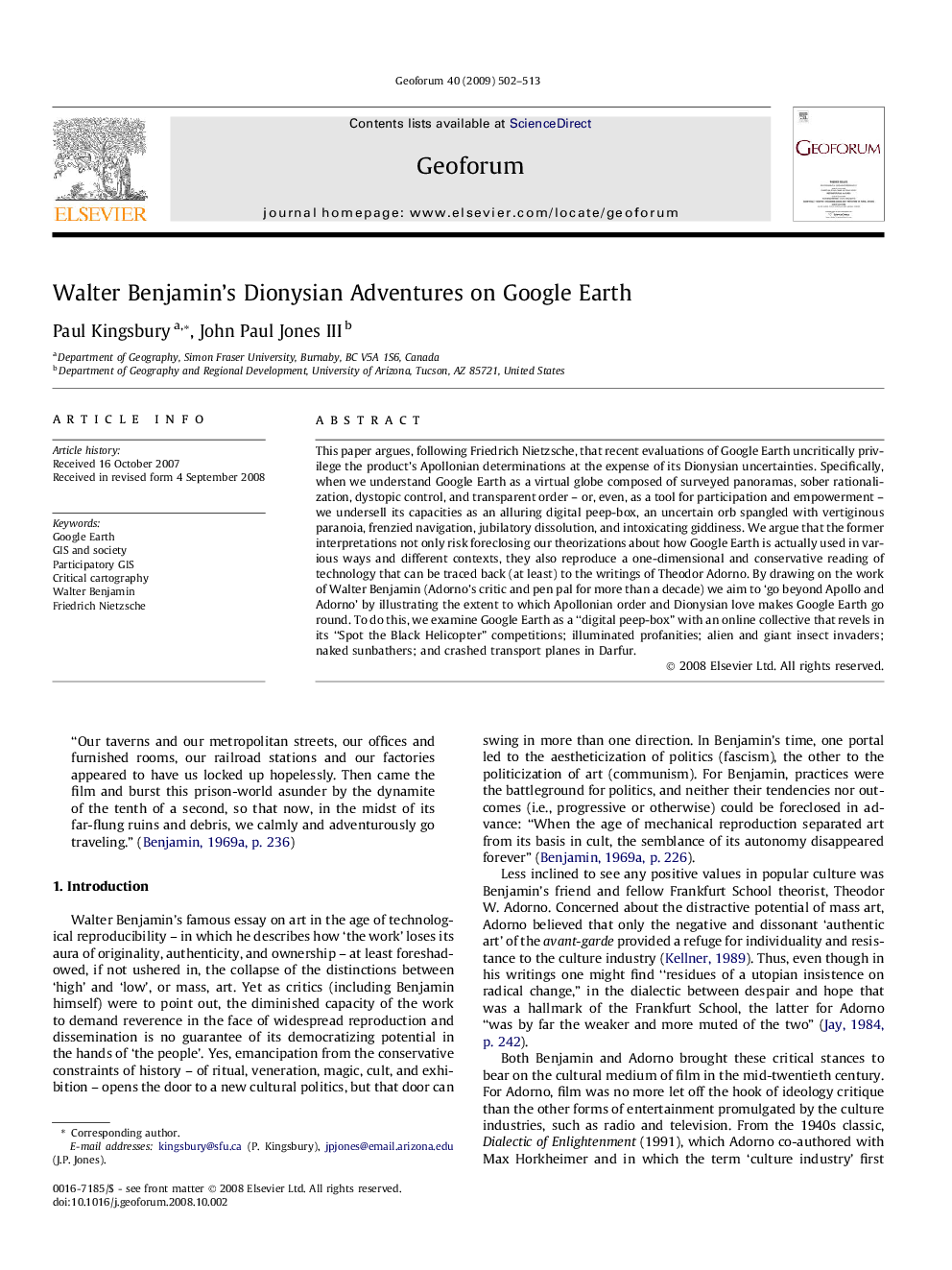| Article ID | Journal | Published Year | Pages | File Type |
|---|---|---|---|---|
| 5074932 | Geoforum | 2009 | 12 Pages |
This paper argues, following Friedrich Nietzsche, that recent evaluations of Google Earth uncritically privilege the product's Apollonian determinations at the expense of its Dionysian uncertainties. Specifically, when we understand Google Earth as a virtual globe composed of surveyed panoramas, sober rationalization, dystopic control, and transparent order - or, even, as a tool for participation and empowerment - we undersell its capacities as an alluring digital peep-box, an uncertain orb spangled with vertiginous paranoia, frenzied navigation, jubilatory dissolution, and intoxicating giddiness. We argue that the former interpretations not only risk foreclosing our theorizations about how Google Earth is actually used in various ways and different contexts, they also reproduce a one-dimensional and conservative reading of technology that can be traced back (at least) to the writings of Theodor Adorno. By drawing on the work of Walter Benjamin (Adorno's critic and pen pal for more than a decade) we aim to 'go beyond Apollo and Adorno' by illustrating the extent to which Apollonian order and Dionysian love makes Google Earth go round. To do this, we examine Google Earth as a “digital peep-box” with an online collective that revels in its “Spot the Black Helicopter” competitions; illuminated profanities; alien and giant insect invaders; naked sunbathers; and crashed transport planes in Darfur.
